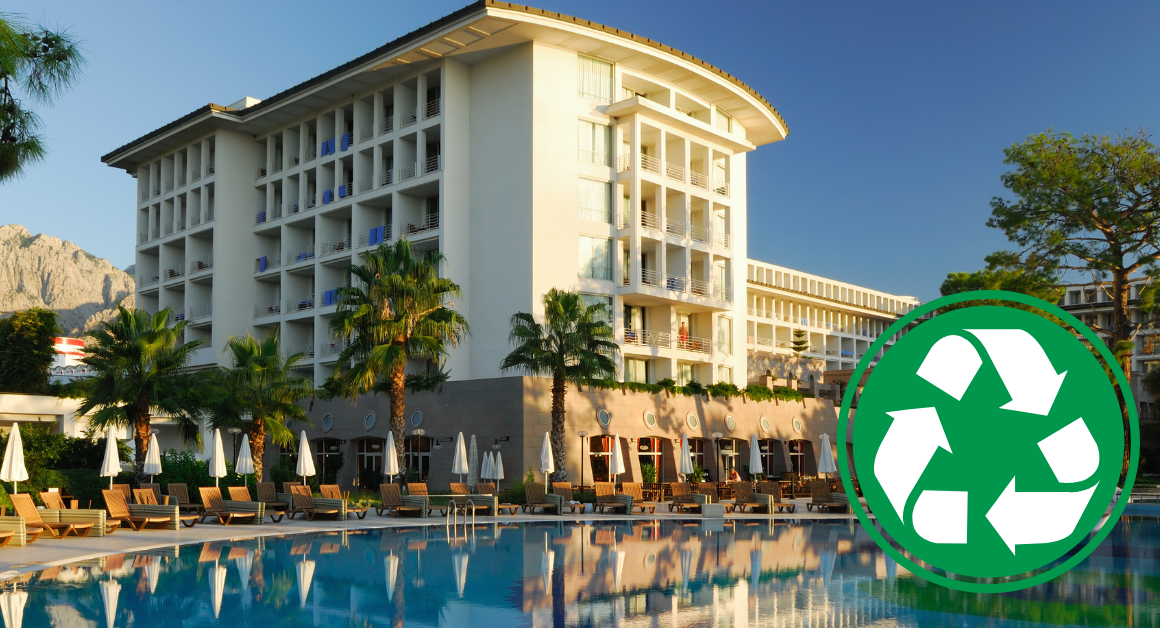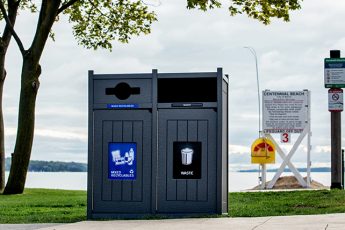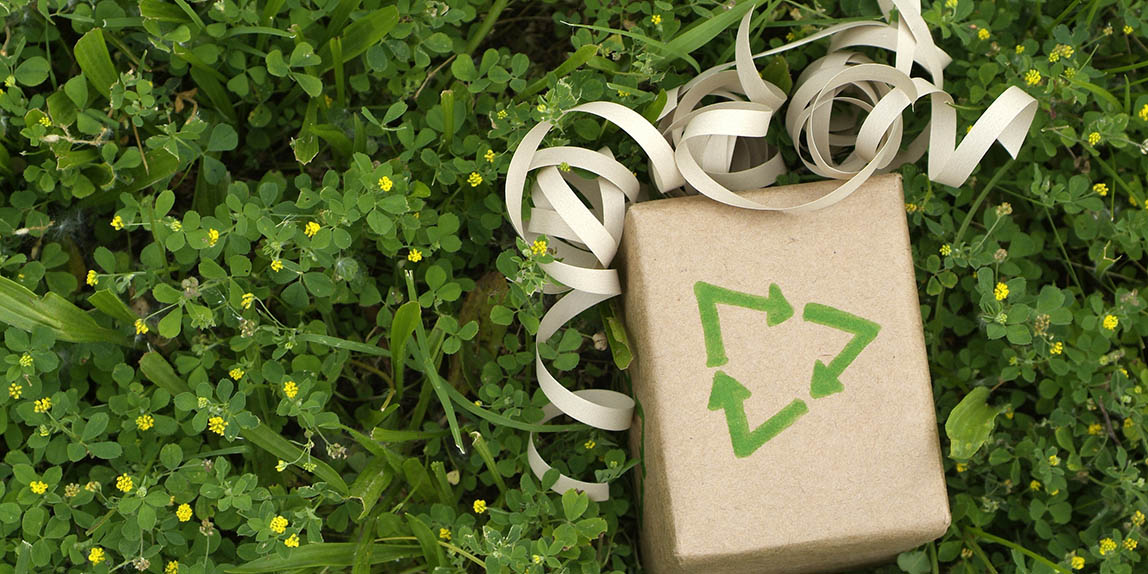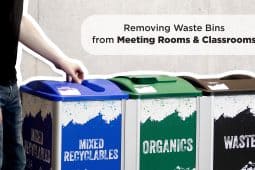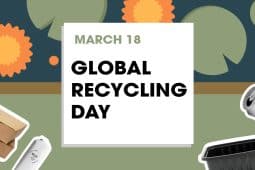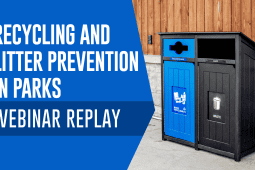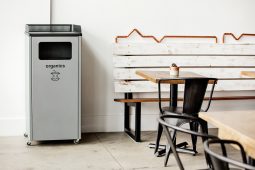We’ve been building exceptional lodging recycling & waste management programs for over 35 years. Here are our 9 key tips to help your hotel/resort build an exceptional waste management program – saving you money, as well as helping to preserve the environment.
Let’s start with the facts.
Hotels are chief consumers of resources, and they contribute immensely to the generation of waste:
- According to Open Access Government, hotels produce, on average, 320,000 tons of waste each year
- According to a 2018 study conducted by the Global Journal of Environmental Science and Management, the waste composition of 120 surveyed hotels was identified as 58.5% biodegradable waste (food waste), 25.8% recyclables, and 15.7% other waste.
- The same study also revealed that the implementation status of waste management practices of the hoteliers initially reaped quite positive achievements with 76% for sorting, 39% for recycling, 29% for reduction, and 0.8% for composting.
In the era of the Green Economy, it’s essential for every hotel and resort to have an effective waste management program in place. An effective program focuses on reducing waste, reusing useful materials, and recycling as much as possible. Ineffective lodging programs tend to generate a lot of extra landfill waste, require regular maintenance, and involve expensive waste disposal.
Bearing these facts in mind, let’s take a look at 9 key ways to enhance the effectiveness of your hotel or resort waste management program:
-
Always begin with a preliminary waste audit to categorize and quantify your lodging waste
Step one of building a successful waste management program begins with identifying and categorizing the types and quantity of waste produced by every segment of your grounds. Use a map of your grounds to identify key areas (ie. rooms, recreational areas, offices, restaurants, etc.) and begin to identify what types of waste is being generated in each area.
For example, front-office waste (like papers, documents, brochures), household waste in rooms (cans, bottles, cardboard), and organic waste from restaurants (vegetable and fruit peels, flowers) can be separated into custom, color-coded bins for easy stream identification and simple waste disposal that minimizes contamination.
-
Build a Green Team
How much time does your resort facilities management team have to spare for sustainability initiatives? If the answer is less than you would like, a green team can be your most valuable ally in the quest for building an effective recycling program.
A ‘Green Team’ is a small group of employees whose combined goal is to educate, empower, and inspire colleagues to establish and promote environmentally sustainable practices within their organization. Every new initiative needs a full launch campaign and a group of influencers that will help build the momentum of your program. Without this team, it will be very difficult to get your new waste management program off the ground.
To set up your green champions for long term success, make sure this group has formal oversight, tools for measurement and verification, a clear mission, and ensure the team members themselves care about sustainability and the greater purpose of the program.
-
Communicating your program to your guests is essential
Because your guests don’t spend every day of the year with you, they may not be aware of how your recycling & waste management program operates. This means you have to educate your guests about the materials you’re collecting, and how they’re separated into specific streams.
Start with your recycling stations. Make sure the labels on your recycling containers are clear and easy to understand; we suggest using graphics with clearly identifiable images of typical items that can be discarded to bridge any international language barriers, and standardizing these graphics across all your bins so they’re consistent throughout your resort.
Get everyone on board with your program by telling everyone about it! Spend the time educating your staff about your goals and sustainability initiatives so they can pass that information and knowledge on to your guests.
-
Modify your operational habits
The daily operation of your hotel provides you with an excellent testing ground for some waste management techniques.
Reducing the amount of waste begins with modifying little things. Here’s some examples to get your creative juices flowing:
- Switch to refillable dispensers for cleaning products in every room.
- Use dishware to serve meals instead of disposable plates. This not only reduces the waste, but elevates your brand in the process.
- Instead of selling bottled water, install water fountains with water bottle refill spouts on throughout your buildings on every floor and in any larger conference rooms.
- Avoid providing paper products (other than toilet paper) in all guest & public bathrooms.
- Use LED bulbs to reduce waste and replacement costs as well as overall energy usage (LED bulbs last up to 10 times longer and consume far less electricity).
-
Kick start an in-room recycling program
Every room counts! One may assume the seemingly small amount of waste generated in each guest room is insignificant compared to waste generated at central, high-traffic locations across the grounds. Not true! Allowing guests to sort their own waste by providing both garbage/landfill and recycling collection bins in each room can lead to big savings for you.
Kimpton Hotels — the company behind 70 Park Avenue in New York and the EPIC Hotel in Miami — has saved about $267,300 a year through the in-room recycling programs that have been in place across the chain since 2004. In an interview with the NY Times, Niki Leondakis, COO for Kimpton mentioned, “Just cardboard recycling alone ranges from $12,000 to $20,000 a year in savings,”
According to Kimpton’s website, the chain reduces its trash at its 47 hotels by more than 40% through recycling alone.
-
Ditch single-use plastics
From the Hilton removing all plastic straws, to the Marriott replacing the individually-offered toiletries with reusable dispensers, hotels and resorts are tackling every facet of their operations to find ways to reduce their plastic usage. These changes have a large positive impact on the environment and can lead to a significant reduction in waste management costs (i.e time spent collecting litter and waste tipping fees).
-
Re-evaluate organics disposal
Not long ago, waste removal was mostly built around collecting co-mingled materials and sending the waste to landfills, where it was incinerated or compacted by waste disposal companies. These days, you can take an active role in managing part of the process.
Food waste is the single largest waste stream in lodging, and fortunately there’s a new crop of haulers that focus solely on organics/compost collection that will gladly collect your food waste – often at reduced costs. And if that’s not an option, you can always invest in food composters to reduce the binned waste generated by food leftovers.
-
Implement centralized recycling & waste stations
There’s a plethora of factors you need to consider when purchasing containers to suit each space around your grounds—too many to cover in this blog! However, as a start, if you want your lodging recycling & waste program to be successful, it’s imperative that you choose containers that keep all of the collection streams together, regardless of their location across your grounds.
For example, if there isn’t a recycling or compost stream directly next to the trash stream, people just end up tossing all their waste in the most convenient bin—the closest one. This leads to enormous amounts of contamination, which can derail your sustainability goals. And your recycling and compost will often end up in the landfill rather than being properly sorted at your Material Recovery Facilities (MRF).
-
Set sustainability standards for your vendors
You should have complete control of the high-quantity materials entering your facilities (i.e single-use plastics, soaps, food packaging, etc.). Communicating standards to your vendors and choosing more sustainable alternatives will have a large impact on the quantity and quality of waste, and therefore your disposal costs.
Of course, once you’ve launched your lodging recycling & waste management program, you’ll start to see many more areas for improvement. These minor or major improvements will continue to increase your diversion rate and positive impact on the environment, reduce your costs, and ultimately enhance brand loyalty with your guests. No down side!
Need help getting started, or looking for more in-depth advice? Contact us to chat with our specialists.
